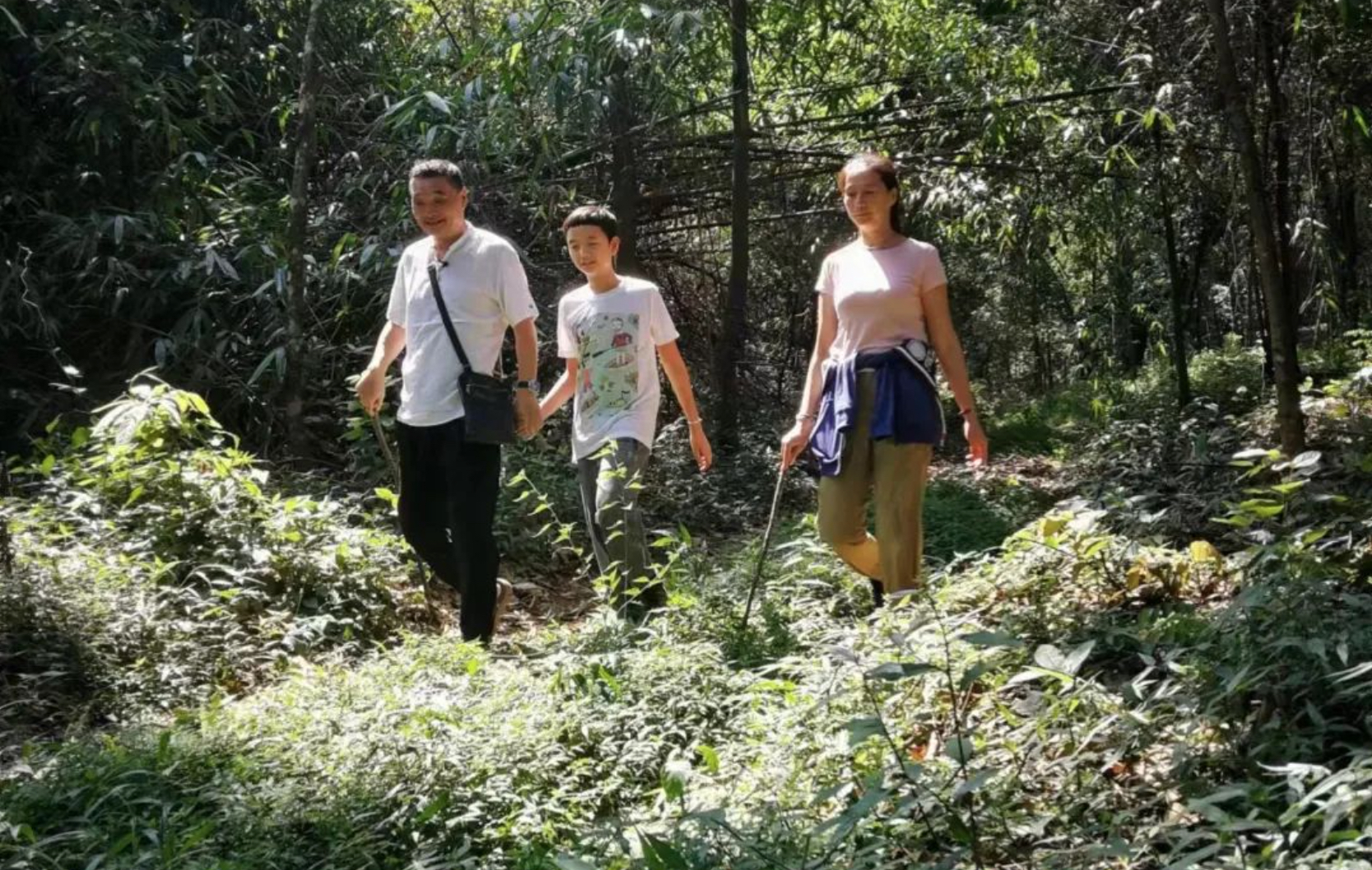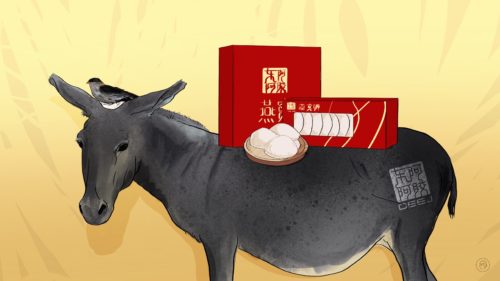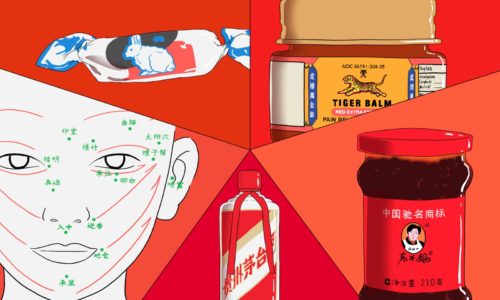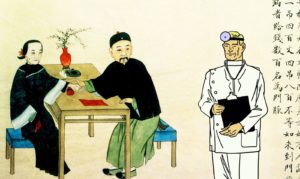Did a famous Chinese writer’s anti-medicine bias result in his son’s death?
Renowned Chinese author Ma Yuan has been the talk of social media this week, as his preference for "natural remedies" may have prevented his son from receiving life-saving heart treatment.

Occasional promotions for his tea business aside, the WeChat public account owned by Chinese celebrated novelist Mǎ Yuán 马原 mostly read as a collection of feel-good family moments: A road trip narrated by his son, Mǎ Gé 马格; a selfie of his wife, Lǐ Xiǎohuā 李小花, with the mangos she planted in the backyard; the family’s black Labrador Retriever dog getting a nice summer bath, etc.
Since 2017, the author has been chronicling his reclusive life in Yunnan’s Xishuangbanna, a tropical rainforest region in southwest China, on social media. But the diary came to a sudden stop in May 2022. A month later, Ma took to Weibo to share a heartbreaking update about his family: His son passed away on June 1 at the age of 13.
The grieving father didn’t reveal the teenager’s cause of death, but wrote, “The 13 years he lived were filled with nothing but sunshine and happiness.” The post concluded with, “Ma Ge, you are up in the sky and we are here in the human world. We will always be together and never be separated.”
In the comments under the post, hundreds of thousands of Weibo users expressed sympathy with the father, who appeared to be in pain. However, in the past week, a different kind of voice emerged.
“You don’t deserve to be a father.”
“Quit performing sadness. It’s your stubbornness that killed your son.”
“Your son is finally free. Hopefully he won’t cross paths with you in his next life.”
The accusatory remarks were made after a controversial profile of Ma appeared in Renwu Magazine, in which the writer, for the first time, opened up about his son’s death and the days leading up to it. Published on March 21, the article has been the talk of Chinese social media all week, with furious readers denouncing Ma as ignorant and selfish.
In the profile, the father reveals that the deceased teenager was born with Marfan syndrome, a genetic disorder that carries a risk of problems with the aorta, the main artery that takes blood away from the heart. Despite the fact that medicines and surgery can help delay or prevent complications, Ma refused to take his son to see a doctor and let him receive treatment. Instead, he believed living in the mountains and leading an off-the-grid lifestyle would be sufficient.
“I’m still convinced that obliviousness and self-deception can help us when we face illness,” he says in the profile, adding that even after warnings and pleas from his wife and relatives, he only agreed to make a small compromise, which was to let his son take traditional Chinese medicine. When Ma Ge’s half-brother secretly arranged a medical consultation for him and was advised that his condition could be largely mitigated through surgery, the father reportedly said, “Medical procedures should stay away from the brain and heart. These two parts of the body should remain intact.”
Good water and bad water
Born in 1953, Ma Yuan is widely acknowledged as a leading figure within the avant-garde movement (先锋派 xiānfēngpài) that gained momentum in the Chinese literature scene in the 1980s. Considered one of China’s most important contemporary authors, Ma’s name is often mentioned in the same breath as Yú Huá 余华, the internationally recognized author of Brothers and To Live, and Mò Yán 莫言, the recipient of the 2012 Nobel Prize for Literature.
For Chinese readers, Ma is mostly known for his writing on Tibet, where he spent years traveling and found inspiration for his most famous works, The Goddess of The Lhasa River and The Temptation of The Trans Himalaya. It was during this period of the time, Ma admits in the profile, that he developed an appreciation and passion for everything nature.
In 1988, Ma moved to Shanghai and subsequently divorced his first wife. He taught at Tongji University for 13 years — until doctors found a tumor in his lung. After receiving treatment in a local hospital for a month, Ma made a shocking decision to resort to “natural therapy,” as he describes in the Renwu story. Ma moved to Haikou in Hainan Province, packing his days with activities like cycling and bathing in hot springs. He only drank a certain brand of bottled mineral water while blaming the water in Shanghai for his sickness.
Ma eventually settled in Yunnan’s Nannuo Mountain and claimed that he treated what he self-diagnosed as lung cancer through shunning conventional medical treatment. There, he built a gigantic mansion, married his second wife, and brought Ma Ge to this world.
Although Ma’s reclusive life in Xishuangbanna was portrayed as laid-back and carefree on social media, the Renwu profile revealed a bevy of familial conflicts underneath the harmonious surface. Ignoring his wife’s opposition, Ma forced his son to drop out of middle school because, according to him, “practical experience outweighs education.” He pushed back on his wife’s suggestion that because of Ma Ge’s condition, the family should move to a place where medical services can be promptly provided. The wife also argued that living in the mountains was harmful for their son because of the high altitude, but her concerns were shrugged off by his husband.
“A tyrant with questionable beliefs”
Quickly after the Renwu profile went live last week, the outrage poured in. On Weibo, a slew of hashtags related to the story trended in the past few days, with the most popular one racking up nearly 100 million views as of today.
The question rippling through Chinese social media is whether Ma Ge’s death was the result of his father’s belief in natural remedies and aversion toward modern medicine. “Ma Yuan is basically a murderer,” argues a viral article on WeChat. “Adults have the freedom to make choices about health, but they shouldn’t impose their ideas on their children. Ma Yuan essentially deprived his son’s right to live. He’s a killer.”
Some also analyzed the story from a gender perspective, accusing Ma Yuan of being a “tyrannical father and husband” who doesn’t allow any challenge to his authority. “His resistance to modern medicine and controlling behavior is clearly rooted in his patriarchal attitudes towards women and family,” a blogger wrote on WeChat.
The most incendiary responses even called for legal action against the novelist, saying that parents have the duty to offer appropriate medical treatment for their children, regardless of their personal or religious views. However, legal experts explained that it would be hard to press charges on Ma as he didn’t show an obvious intent to harm his son or evade his responsibility to look after him.
Unlike in the U.S., anti-vaccination or anti-science conversations never moved from the fringe of society to the mainstream in China. Even in the age of COVID-19, people who refused to get jabs mostly based their decisions on doubts about the effectiveness of vaccines, rather than general disbelief in medical protection.
When debates about modern treatments take place in China, they are often brought up in comparison to traditional Chinese medicine (TCM), a broad range of centuries-old medical practices that include herbal remedies and acupuncture. Despite the limited scientific evidence substantiating its effectiveness, TCM has seen a rise in popularity and usage in recent years with the help of the Chinese government, which has increasingly sought to brand the therapies as a source of national pride and a form of soft power.
During the COVID-19 pandemic, a group of TCM experts was put in charge of a medical facility in Wuhan, which was purposely built to treat COVID-19 patients. Meanwhile, the National Health Commission included TCM in its treatment plan, recommending it to doctors as an effective tool to mitigate patients’ symptoms of fever and breathing difficulties.
Globally, China’s longstanding TCM efforts have paid off. In 2019, the World Health Assembly, the governing body of the World Health Organization, formally added a chapter on traditional medicine to its influential global compendium for the first time.
However, Chinese people skeptical of the ancient medical methods have been reacting to TCM-related news with alarm. And naturally, many of them saw Ma Ge’s death as an example of TCM failing to work its magic that its advocates believe. “The moral of the story is that TCM can’t cure cardiac diseases. It’s a myth that the heart can’t be operated on,” a Weibo user wrote.






